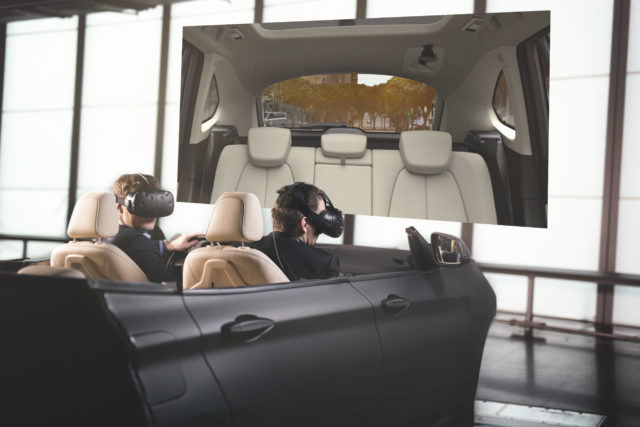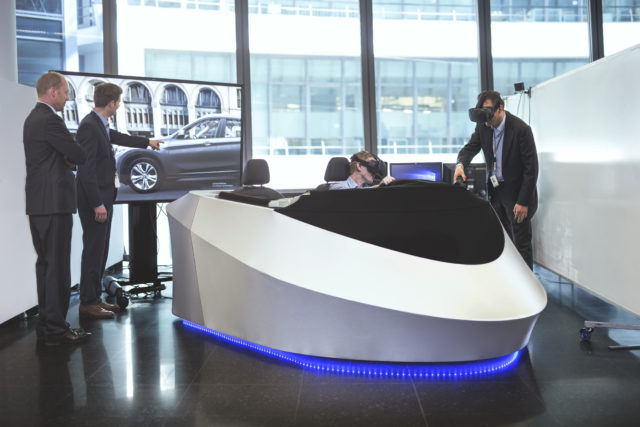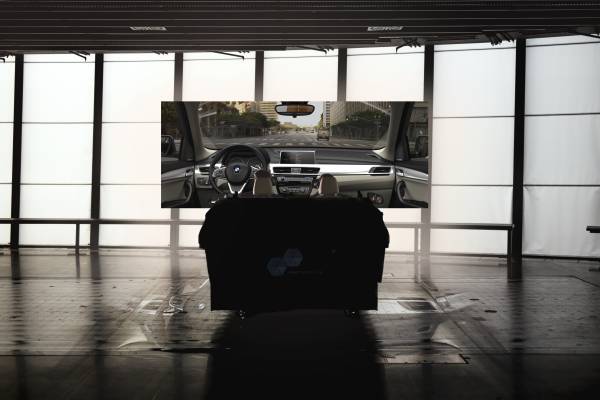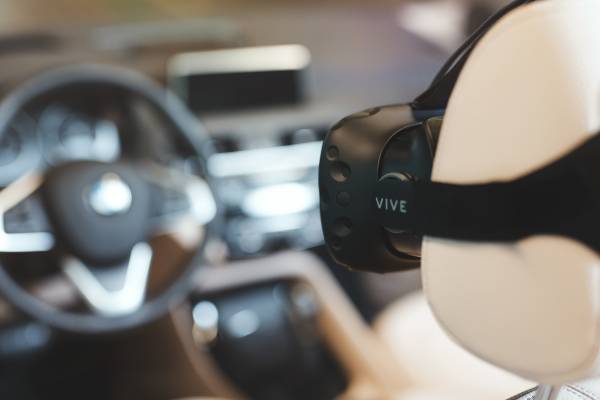It’s no secret by now that a cavalcade of car manufacturers are shifting their marketing messages into new gears by using virtual and augmented reality to engage with consumers.
Using the immersive technology to shun showroom space, and to model a caravan of cars is crucial to revolutionizing the retail experience—all while cutting costs and raising demand and global brand awareness.
Exercising AR and VR for marketing, training and research and development is a growing trend forward-thinking brands like Volvo, Mazda, Kia and Ford, among several others, have spearheaded in recent years. And why wouldn’t they? According to Bloomberg, US car dealers spend $2.75 billion annually on interest to keep new vehicles on their lots.

One such automaker using VR for a variety of research-and-marketing-related verticals is BMW, utilizers of VR systems in the development process since the 1990s.
In April, the luxury German automobile manufacturer partnered with HTC Vive to help develop new cars while using VR to offer the greater flexibility, faster results and lower costs.
According to company officials, they became the first car manufacturer to introduce a mixed reality system into vehicle development that has been devised entirely using components from the computer games industry. BMW also using Epic Games’ Unreal Engine 4 technology.
Niklas Drechsler, who handles corporate and governmental affairs for BMW Group, joined [a]listdaily to detail some of the ways of which BMW is speeding through the VR vertical.
How was the MINI Augmented Vision received by consumers last year? Looking back at it now, what worked well, and what will you tweak for next time?
This is a visionary prototype that is intended to demonstrate how see-through glasses can aid safety and comfort in the area of personal mobility. Until today there were no sales launch of MINI Augmented Vision—first and foremost because it has not yet been decided whether MINI will actually produce such glasses itself. It is quite conceivable that MINI would concentrate on interfacing existing AR glasses from other manufacturers with MINI vehicles if the technology were to go into production.

How will BMW leverage see-through tech as a possible potential in regard to future customer devices?
BMW Group is constantly screening and analyzing visionary innovations. We think that a see-through device has big potential.
How will VR change the car-buying process in the future? What are virtual showrooms/dealerships in a briefcase capable of? How is BMW Group using VR for its marketing campaigns?
BMW Sales Germany has been using VR glasses and applications as supporting tools for its sales and marketing activities for a number of years now. In the summer of 2014, for the BMW i8, we introduced a pilot project with Google Glass. The journey of innovation to experience pioneered developments in the BMW i8, such as Laserlight, carbon and plug-in hybrid technologies. It was used at major German airports. In the fall of 2015, for the BMW 7 Series experience with Intel Real Sense, it was an interactive out-of-home installation meets gesture control in the BMW 7 Series. In seven cities, people were able to interact with promotional material intuitively using gestures—mirroring the new operating concept of the BMW 7 Series. In the spring of 2016, for our Innovation Day at dealers to mark BMW’s centenary, we used VR glasses at dealers to experience the BMW Vision Next 100 from the inside. It was complemented by Vision Gate, which allowed visitors to experience the BMW Vision Vehicle at closer quarters and create a virtual snapshot of the car.

Why is it important for brands to be at the forefront of VR?
Virtual reality applications are a good way of making our innovations something to experience and of illustrating our technology in clear terms. We use it both for our employees in training courses and for our customers at dealers.
Why is VR the major trend of the future? What does it enable that other tech simply can’t?
From our point of view, it’s a little bit too overestimated to talk about the major trend in regard to VR. We think that VR is one of the important innovations of the future.
What kind of a role will VR have in auto industry in five years?
As the field of VR is developing very fast, it’s tricky to make any predictions. I think that hype aside, more companies will actually look very carefully in which cases VR gains advantages and use this technology in such cases.
Follow Manouk Akopyan on Twitter @Manouk_Akopyan

